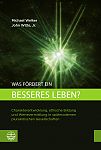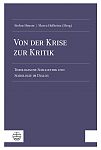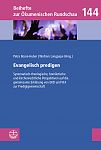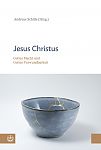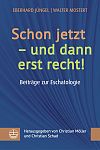Hrsg. von Markus Witte
Hiob als poetisch verdichtete Frage nach der Gerechtigkeit Gottes und dem Sinn des Leidens spielt im Judentum und im Christentum bis heute eine überragende Rolle zur Deutung menschlicher Existenz. Der Band beleuchtet wesentliche literarische und theologische Fragen des biblischen Hiobbuches, geht dessen Rezeption im rabbinischen Judentum und spätantiken Christentum nach, weist am Beispiel der mittelalterlichen Kathedralkunst ikonographische Parallelen zwischen dem Schmerzensmann Hiob und Jesus Christus auf und zeigt die symbolische Kraft der Hiobfigur in der jüdischen Dichtung des 20. Jahrhunderts.
Im Verbund mit Hiob-Graphiken, die eigens für dieses Buch angefertigt wurden, lädt der Band ein, mit Hiob den wesentlichen Fragen des Lebens nachzugehen und diese nachzudenken.
Mit Beiträgen von Hermann Spieckermann, Tanja Pilger, Markus Witte, Francesca Yardenit Albertini, Chaim Rozwaski, Martin Büchsel und Georg Langenhorst sowie Illustrationen von Moni Jahn.
[The Figures of Job. Interdisciplinary Studies on the Image of Job in Judaism and Christianity]
In both Judaism and Christianity, Job as the poetically condensed question addressing the justice of God and the meaning of suffering to this day plays an outstanding role in the interpretation of human existence. This volume sheds light on central literary and theological questions raised by the Biblical Book of Job; it traces its reception in rabbinic Judaism and Christian Late-Antiquity; using the example of medieval sacred art it draws iconographic parallels between the Man of Sorrows Job and Jesus Christ; and finally, it stresses the symbolic power of the figure of Job in 20th-century Jewish poetry.
With its graphic images of Job, which were specially created for this book, this anthology invites us to join Job in addressing and contemplating the essential questions of life.
Zum Herausgeber
Markus Witte, Dr. theol., Jahrgang 1964, studierte in Frankfurt am Main, Erlangen und Marburg Evangelische Theologie, Judaistik und Semitische Philologie. Nach Promotion (1993) und Habilitation (1997) im Fach Altes Testament absolvierte er ein Vikariat in der Evangelischen Kirche in Hessen und Nassau. Von 2001 bis 2009 war er Professor für Altes Testament an der Johann-Wolfgang-Goethe-Universität Frankfurt am Main. Seit 2009 ist er Professor für Exegese und Literaturgeschichte des Alten Testaments an der Humboldt-Universität zu Berlin und Leiter des Instituts Kirche und Judentum.


